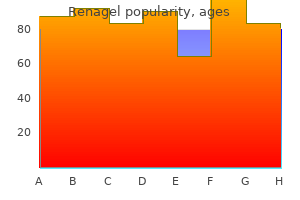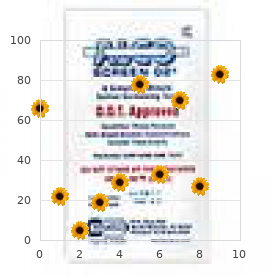"Order 800mg renagel visa, gastritis rice".
J. Randall, M.B. B.CH. B.A.O., M.B.B.Ch., Ph.D.
Co-Director, Midwestern University Chicago College of Osteopathic Medicine
That this opinion was well founded, the precipitate retreat of that General from North Carolina, and our victory at Guildford, after his return with Virginia reinforcements, are sufficient proofs. I know that it has been asserted or insinuated that they were not sufficiently tried upon this occasion: But can any dispassionate person believe, that I did not give every encouragement to people of all descriptions to join and assist us, when my own reputation, the safety of the army, and the interests of my country, were so deeply concerned in that junction and assistance All inducements in my power were made use of without material effect; and every man in the army must have been convinced, that the accounts of our emissaries had greatly exaggerated the number of those who professed friendship for us, as they must have observed, that a very inconsiderable part of them could be prevailed upon to remain with us, or to exert themselves in any form whatever. Last, it might be contended that the British perhaps ought to have more actively armed and incited the loyalists. However, when early on a few militia regiments turned coat on them, carrying away issued arms and supplies to then be used against the British themselves, Cornwallis understandably was obliged to be more cautious and hesitant when it came to empowering them militarily; and it is this distrust, justified or not on either side, which may perhaps have proved fatal to an increase in the loyalists participation and support. Augustine Prevost, 60th Regiment (57) Prevost distinguished himself in defeating the combined American and French forces in the siege and assault on Savannah in September and October 1779. While in Georgia, he was able to work well with his subordinates and local loyalists; such that when he left in May 1780, his absence was sorely felt. Paston Gould, 30th Regiment Gould, while still a Colonel, arrived in Charleston in early June 1781 with 3 regiments, and some additional troops, from Ireland. In doing so, he superseded Balfour as overall commander in the Carolinas and Georgia. He himself remained inside Charleston, however, until after Eutaw Springs; when he then took command of the army in the field from Lieut. At Guilford, he was so severely wounded (twice, in the chest and thigh), that "his recovery was long in doubt. Yet like many others with whom he served, he steadfastly continued to do his duty, and with distinction, even when things became most difficult. For a period he acted as commandant of Charleston and its garrison, but by early September had fallen ill. Nisbet Balfour (also Nisbit), 23d Regiment (36) Initially Balfour was in charge of Ninety Six before Cruger came from Augusta to take his place. A man who had risen from the ranks to high command, the busy Balfour, though admittedly indefatigable, appears to have taken his task in a matter of fact, routine way. In his correspondence, he sometimes comes across as a detached, albeit astute, observer; sometimes amused, gratified, or annoyed by this or that going, but rarely seeming to be actually part of it. In addition, he gained the reputation, deserved or not, among the Charleston prisoners for being a cruel and capricious tyrant. Alured Clarke, 7th Regiment (35) Clarke, was part of the Charleston expedition, and in the early part of the siege there led a brigade consisting of the 7th and 23rd regiments. Augustine, returning to and resuming his place in Savannah by early June; with Savannah itself being evacuated on July 11th, 1782. After the city was taken, he went to New York with Clinton, though some of his regiment was left with Cornwallis. He was, nonetheless, as regimental commander of the Volunteers of Ireland a full Provincial Colonel. He commanded the British left wing at Camden, and later when Cornwallis moved into North Carolina in Jan. Only 26 years of age in 1780, Rawdon handled his small army in a masterly way in dealing with Greene. A less sharp and vigilant commander might more easily have been found out and incurred disaster. Rawdon, nonetheless, maintained his guard while managing to retain the firm confidence of his men. He may not have been such as to inspire love (he could be pointedly harsh and driving, and there were desertions), but as a commander he was bold and intimidating, and his troops respected him for this. Isaac Allen, 3d Battalion, New Jersey Volunteers (39) Allen led his men at the first siege of Augusta, Long Canes, the defense of Ninety Six, and at Eutaw Springs, on all of which occasions he and his unit acquired honor for themselves. He subsequently occupied Augusta where he became superintendent of Indian affairs; a strategically important position, acting as a go-between with the Creeks, Cherokees on behalf of the British. Both Balfour and Cornwallis feared that both his reputation for violence and his close ties with the Indians, would only inflame rebel sentiment, and for a time considered having him removed from Augusta and replaced with Lieut. As commander at Augusta, he lost no time in seeking and obtaining revenge against the whigs for the outrages he suffered, and war up along the Savannah thereafter became quite brutal and bitter. Speaking in his defense, biographer Edward Cashin argues that the wrongs Brown was blamed for were simply the carrying out of orders he received from Cornwallis and Cruger. But when, in the spring of 1781, Lee and Pickens came south to join the Georgians, he was forced to surrender.
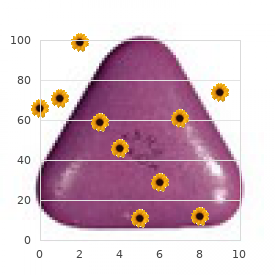
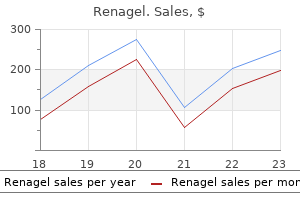
Formedaroundthe notionthatAmericanswere"TaxedEnoughAlready,"thegroupnotonlyargued foralowertaxburdenbutalsoforasmallergovernment(anexemptionmadefor the military) and a sharp cut in the deficit. Ofcourse, suchargumentsusuallyignoredtheparticularchallengesfacedbyGreece:asa memberoftheeurozone,itcouldnotcontrolitsowncurrency,puttingitatthe mercy of Germany and other European powers that were unwilling or faced strongpoliticaldisincentivestobailthemout. House Budget Committee chairman Paul Ryan relied on Reinhart-Rogoff in his Fiscal Year 2013 budget plan, proposed a few months before the 2012 presidential election. In a section titled "The Consequences of Inaction," he claimed,"TheeconomiceffectsofadebtcrisisontheUnitedStateswouldbefar worsethanwhatthenationexperiencedduringthefinancialcrisisof2008. Oklahoma senator Tom Coburn (R) described a bipartisan briefing, with no mediapresent,givenbythetwoeconomists. Inthisroom,Rogoffhadadvocated for immediate action to cut the deficit, telling the assembled senators, "Not actingmovestherisk[ofaneconomiccollapsecausedbyadeficitcrisis]closer. Its consequences were real and felt by people all around the world in the form of higherunemploymentratesincountrieswhosepolicymakersusedthestudyasa justificationforthenecessityofausteritymeasures. At the moment the study was published, the world was reeling from the effectsofthefinancialcrisis. In the past this would have evoked a Keynesian response from policy makers on both sides of the aisle-a joint effort to use government expenditures as a tool for boosting a sputtering economy. Those touting the recommendations of Reinhart and Rogoff were advocating for the opposite:clampingdownongovernmentexpendituresasawayofreducingthe deficit. Evenastheprivatesectorrecoveredandnew jobs created surged past the one million mark, hundreds of thousands of governmentpositionsatthefederal,state,andlocallevelshaddisappeared. This not only impacted those left unemployed but also reverberated throughout the economy. Austerity at the federal level, encouraged by Reinhart-Rogoff, was holdingbackeconomicrecovery. He assembled his data set from publicly available sources but could not get his spreadsheet to match the conclusions presented by the economists. Theirpaperwasguidingglobaleconomicpolicy,andpeopleatthehighestlevels of the most powerful governments in the world looked to them for advice. Herndon was an unheralded graduate student who had yet to complete his coursework. Finally, he reached out to Reinhart and Rogoff and asked for a copy of the spreadsheetstheyhadbasedtheirworkonsohecouldcompletehisassignment. The pair also hadweightedthedatainawayinwhichasingle year ofeconomicmalaisein New Zealand in a period of high debt above the 90 percent threshold counted equally to a nineteen-year high-debt period of prosperity in England. Additionally an error on their spreadsheet caused them to omit data from Denmark,Canada,Belgium,Austria,andAustralia. With the core of their research called into question, Reinhart and Rogoff responded in the New York Times. First, they acknowledged the error in their spreadsheet calculations "full stop," but went on to defend the overarching findings of their research. They made the case that the data from New Zealand had only recently been tabulated, and it had not been "vetted" for accuracy. Krugman points out that the United States, Britain, and Japan were experiencing"largedeficitsandrapidlyrisingdebt"while"theirborrowingcosts remained very low. Miles Kimball, an economistattheUniversityofMichigan,andYichuanWang,hisundergraduate student, re-crunched the numbers and determined they "could not find even a shred of evidence in the Reinhart and Rogoff data for a negative effect of governmentdebtongrowth. Bloomberg Business referred to the study as "the Excel error that changed history. HesupportednotonlytheworkofReinhartandRogoffbutan entire movement focused on putting deficit reduction above all other policy goals. Hemadethebulkof his fortune as founder and eventual chairman of the private equity firm the BlackstoneGroup,fromwhichhecollected$1. In 1971, he entered politics, joining the Nixon administration as Assistant to the President for International Economic Affairs and executive director of the Council for International Economic Policy. For fortyyearshehasmaintainedasingularfocusonreducingthenationaldebtand has spent a large part of his fortune, more than $500 million, to make that a reality. His primary financing vehicle to fund these efforts is a foundation that bearshisname.
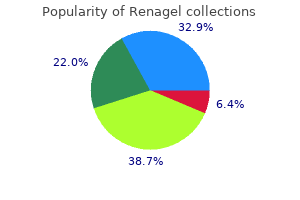
The goal of the preoperative evaluation is to identify, stratify, and reduce risk for major postoperative complications. The crucial elements of this evaluation are a careful history and physical examination. Preoperative testing for low-risk surgical procedures typically does not reclassify the risk estimate established through the history and physical examination, may result in unnecessary delays, lead to downstream risk from additional testing, and add avoidable costs. While certain screening tests lead to a reduction in cancer-specific mortality, which emerges years after the test is performed, they expose patients to immediate potential harms. Patients with life expectancies of less than 10 years are unlikely to live long enough to derive the distant benefit from screening. Furthermore, these patients are more likely to experience the harms since patients with limited life expectancy are more likely to be frail and more susceptible to complications of testing and treatments. Therefore the balance of potential benefits and harms does not favor cancer screening in patients with life expectancies of less than 10 years. Members of the ad hoc committee were then solicited to determine possible topics for consideration. The topics chosen were selected to meet the goals of the Choosing Wisely campaign, utilizing the unique clinical perspective of members of the Society in ambulatory general medicine as well as hospital-based practice. The final topics were selected by a vote of committee members based on the strength of the existing evidence, the unique standing members of the Society have in addressing the clinical topics selected, as well as contributions the recommendations would make in terms of patient safety, quality and economic impact. Frequency of blood glucose monitoring in relation to glycemic control in patients with type 2 diabetes. Self-monitoring of blood glucose in patients with type 2 diabetes mellitus who are not using insulin. Cost-effectiveness of self-monitoring of blood glucose in patients with type 2 diabetes mellitus managed without insulin. General health checks in adults for reducing morbidity and mortality from disease: Cochrane systematic review and meta-analysis. Guide to clinical preventative services: an assessment of the effectiveness of 169 interventions. What is the value of routinely testing full blood count, electrolytes and urea, and pulmonary function tests before elective surgery in patients with no apparent clinical indication and in subgroups of patients with common comorbidities: a systematic review of the clinical and cost-effective literature. Abnormal pre-operative tests, pathologic findings of medical history, and their predictive value for perioperative complications. Preoperative laboratory testing in patients undergoing elective, low-risk ambulatory surgery. Time lag to benefit after screening for breast and colorectal cancer: meta-analysis of survival data from the United States, Sweden, United Kingdom, and Denmark. Bloodstream infection, venous thrombosis, and peripherally inserted central catheters: reappraising the evidence. Risk of venous thromboembolism associated with peripherally inserted central catheters: a systematic review and meta-analysis. Risk of catheter-related bloodstream infection with peripherally inserted central venous catheters used in hospitalized patients. Temporary central venous catheter utilization patterns in a large tertiary care center: tracking the "Idle central venous catheter". As leading teachers of the next generation of physicians, we are committed to moving the practice of medicine to a more evidencebased approach. We are deeply committed to using science to improve our knowledge-base so that our patients can receive the best treatments, the optimal prevention care and the highest quality of life. We believe that the Choosing Wisely campaign mirrors these same commitments to the evidencebased practice of medicine for the benefit of our patients. False positive results of either test can lead to unnecessary procedures, which have risks of complication. Pap testing of the top of the vagina in women treated for endometrial cancer does not improve detection of local recurrence. False positive Pap smears in this group can lead to unnecessary procedures such as colposcopy and biopsy. Colposcopy for low-grade abnormalities in this group does not detect recurrence unless there is a visible lesion and is not cost effective.
